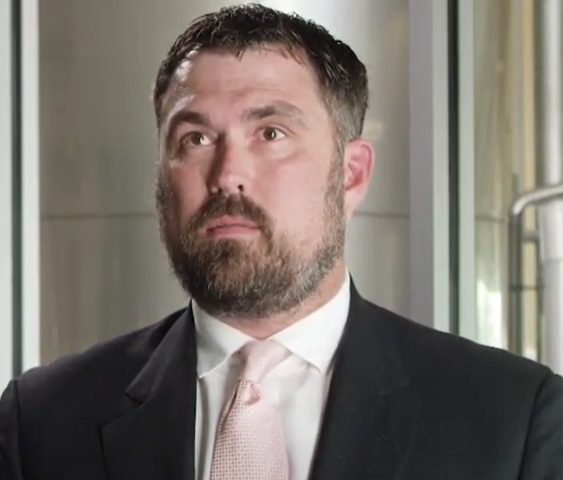The medical records of over 500,000 veterans would provide researchers with an invaluable dataset to use in their work to learn more about the brain. Morgan Luttrell recognizes that and understands what it would mean to be able to process what they learn efficiently, getting people their diagnosis and treatment as quickly as possible.
Learn more about some of the treatments available for those recovering from brain injury and PTSD using our Treatment Hub.
Watch more videos from Morgan Luttrell.
To get your head around why it’s so important to have the healthcare records or the healthcare information of 500,000 veterans - actually a million - is that is the richest dataset in the world. And why that is so important and why you hear researchers and scientists drool over that and get so giddy to get their hands on that, because that data is so rich with so many different variables. That if we were able to compute that, we would have a cohort or a group that we could compare and answer questions from. Because researchers and scientists, they create studies and they try to get a certain inclusion for the study. Where I’m going to recruit 20 people, they all have to be right handed, they have to speak English as their native tongue, so on and so forth. And that’s difficult. But here you have a dataset, almost all of us are the same. Very different, but we’re all veterans. They have the blood, they have the brain scans, they have all of that. And with that large of a number, you can get so many answers to so many questions. Because over the decades and decades and decades we’ve been collecting research, collecting research and there’s so much of it, we can’t compute that. We don't know how to answer that. And that’s where technology comes in. That’s where our high performance computers at our national laboratories now have the capability to answer those questions. You could put all of that information into a computer. You could put that information into a computer that would take 100,000 scientists 300,000 years to compute and our computers can do it in a matter of minutes. And what does that do for us as a society? That’s real time diagnostic. That answers questions that could never be answered before. That’s precision medicine. That’s personalized care. That is a game changer. That is how we save lives. Let’s take traumatic brain injury, for instance. We do MRIs; we scan the brain for injury. A normal MRI scan would probably take anywhere from 24, depending on the numbers, 24, 48, maybe even up to ten days for a neurologist to come in, a radiologist to come in, get together, look through those scans, find the problem, create a diagnosis, get back to the patient. Think of everything that can happen in ten days to somebody who is, with a traumatic brain injury. Having the ability to compute that through our nation’s high performance computing capabilities in order to do that in a matter of minutes and seconds. If you need to have surgery, I’ll know it. If you have a bleed, it’s - you’re not going to make it, I’ll know it. That’s acute care. Long-term care, we have the ability to compare, let’s just say your brain, your scan to thousands of other healthy brains. And what that allows us to do is to see your injury, see how it compares to healthy brains to say okay, look your depth, your scope of your brain injury will cause these emotional instabilities, will cause these problems in these particular areas. What we have in place for that is this. Remember I said earlier, answering the questions, just having an answer to what the problem is is remarkable. I mean, that will make you feel better instantaneously. And that is, that’s where - we’re right there. We’re so close and it’s exciting. And that’s what I’m a part of now and we’re doing it for the vets, for everybody. We’re doing it for the mothers whose babies got hurt on the soccer field or on a four wheeler. This video was produced by BrainLine thanks to generous support from the Infinite Hero Foundation
This video was produced by BrainLine thanks to generous support from the Infinite Hero Foundation.
About the author: Morgan Luttrell
Morgan Luttrell is a Navy SEAL veteran. He sustained back injures including major damage to his spinal cord and suffered a traumatic brain injury in a helicopter crash during training. When he got out, he said he traveled the country trying to figure out how to “fix” his brain. He earned a master’s degree in applied cognition and neuroscience and a Ph.D. focusing his studies on helping veterans with PTSD and other traumatic brain injuries.

